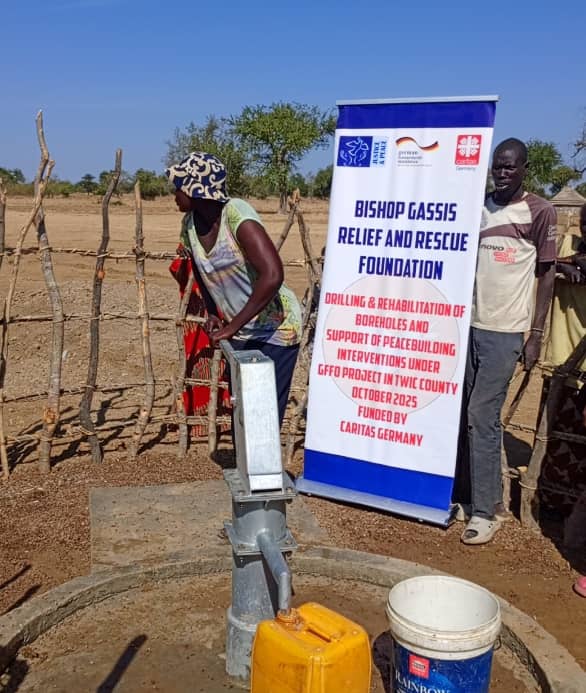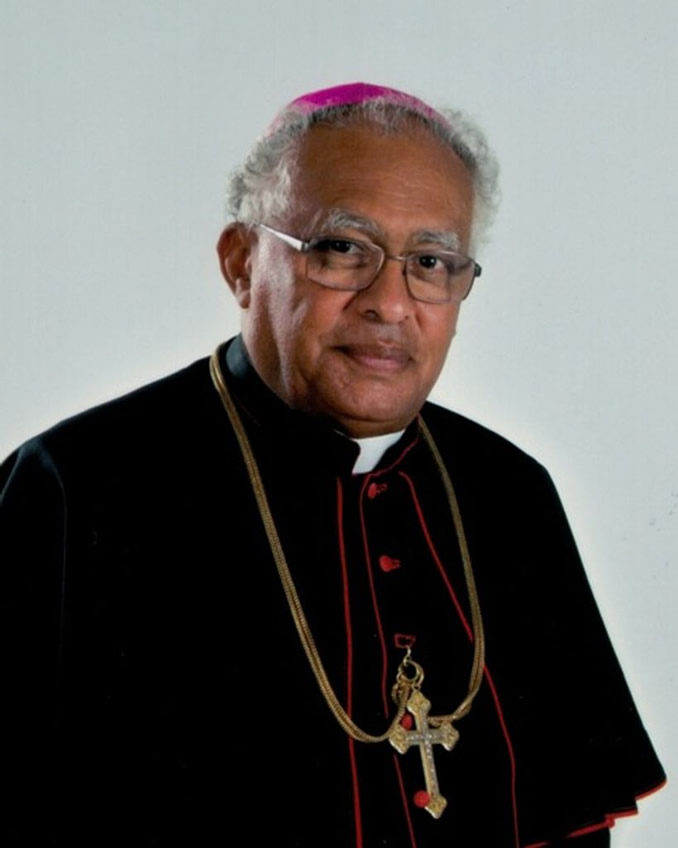
Bishop Gassis Relief and Rescue Foundation (BGRRF) is a faith-based humanitarian and development organization working across Sudan and South Sudan to support vulnerable communities through compassion, resilience, and Catholic social teaching.
Founded in 2016 by Emeritus Bishop Macram Max Gassis, BGRRF was born out of the pastoral, humanitarian, and development programs of the Diocese of El Obeid and the Diocese of Wau. Today, we serve thousands through a broad range of emergency relief and long-term development programs grounded in faith, dignity, and human rights.
We envision ‘Reconciled families united in God’s Love and leading dignified lives’.
We exist ‘To witness God’s Love by facilitating Spiritual and Physical works of Mercy’.
We are guided by biblically inspired values and principles that shape everything we do:
Love and Hope – We serve with compassion and mercy
Integrity – We practice transparency and accountability
Solidarity – We stand with the oppressed and marginalized
Cooperation – We believe in the power of partnerships
Transformation – We support lasting personal and community change
September 21, 1938 — June 4, 2023 Mechanicsburg

Bishop Macram Max Gassis, 84, Emeritus Bishop of El-Obeid and Darfur Diocese, Sudan, passed away peacefully on Sunday, June 4, 2023, in his residence in Mechanicsburg, PA in the U.S. surrounded by his loving family.
Bishop Gassis was born in Khartoum, Sudan, the son of the late Max Gassis and Fahima Girgis. He professed in 1957, was ordained priest June 28, 1964 in Rome, Italy to the order of the Comboni Missionaries of the Heart of Jesus, appointed Apostolic Administrator of El Obeid Diocese in 1983, appointed and ordained Bishop of El Obeid Diocese in 1988 and retired in October of 2013. Although administratively retired, the Bishop continued his extensive humanitarian work in many areas of Sudan and South Sudan.
Following ordination, he returned to his home Diocese of El Obeid in 1965, and served as assistant Parish Priest in Wad Medani, expanding the work of the church and establishing new Parishes throughout the region until his ordination as Bishop in 1988. The El Obeid diocese covers more than 340,000 square miles (3 times the area of Italy) in western Sudan, including all of the Darfur region, as well as part of South Sudan.
He also earned a Masters Degree in Canon Law from The Catholic University of America, Washington, D.C. and served as a Chaplain at the University of Khartoum. The Nobel Peace Prize nominee testified before the U.S. Congress in 1988 about the human rights abuses committed by the Sudanese government against the innocent people of his country, including enslavement, air raids, forced starvation, and rape at the hands of the government’s army. Two years into his Episcopal Ministry, Bishop Macram who had won the hearts of many for speaking out against human rights abuses paid the huge price of being exiled from his country when he faced a major threat on his life.
“An Angry Shepherd”, written by John Ashworth, about the Bishop’s life and work states, “He is a very friendly man and he likes to joke a lot. He laughs easily too. He is very accessible and openly accepts invitations to share a meal or just to talk.” But behind this cheerful face, Ashworth describes a heart that has been stung countless times and one that is in constant anger for the injustices that continue to bedevil Sudan. “He is a very fearless Bishop. In the middle of one of Africa’s longest wars, Bishop Macram built several hospitals, one of which is the Mother of Mercy Hospital. He also built hundreds of wells to provide villages with life-saving clean water.” His countless projects include schools, churches, parish buildings, community farms, and seminaries. That is in addition to the numerous seminarians and teachers he sent abroad for training. His effort in spreading the faith was equally outsized when he often held baptisms for hundreds at a time.
When the Bishop was not checking in on his projects under the blistering heat of the Sudanese sun, he was walking the halls of international institutions and offices of world leaders to tirelessly raise awareness to the plight of his people. Bishop Gassis, the winner of the 12th annual William Wilberforce Award for humanitarian work, can be as charming as he is fearless in standing up for the human rights of his flock. Awarded an Honorary degree from the University of California San Francisco and His frank but kind approach has earned him the respect and friendship of many leaders. He often repeated a mantra that he believed is the key to lasting peace, “Peace through Justice”. He strongly advocated that for peace to hold we must accept each other’s rights for freedom and human dignity.
Despite his forceful personality, his greatest strength was his unending love and forgiving heart. As a genuine apostle of Jesus, he loved the powerful and the meek with equal measure. His ability to forgive and welcome back to the flock was unending. He seamlessly oscillated between ardent defender of the week and the jovial loving father of his flock in his eloquent Sunday homilies. He never failed to speak up for his Sudanese sons and daughters but always found a way to teach about the grace of gentle, genuine love to one another. He frequently joked saying “Jesus didn’t say go like one another, Jesus said go love one another.”
Bishop Gassis is survived by his nephews and nieces, Dr. Safwat Gassis and wife Catherine of Mechanicsburg, Makram Gassis and wife Lily of California, Rita Gassis of Cairo, Egypt, Robert, Susan, Cecil and Sylvia. In addition to his parents, he was preceded in death by his brothers Albert, Adli and Nagi Gassis and sister-in-law Yvonne Samuel.
At Bishop Gassis Relief and Rescue Foundation (BGRRF) , we envision ‘Reconciled families united in God’s Love and leading dignified lives’.